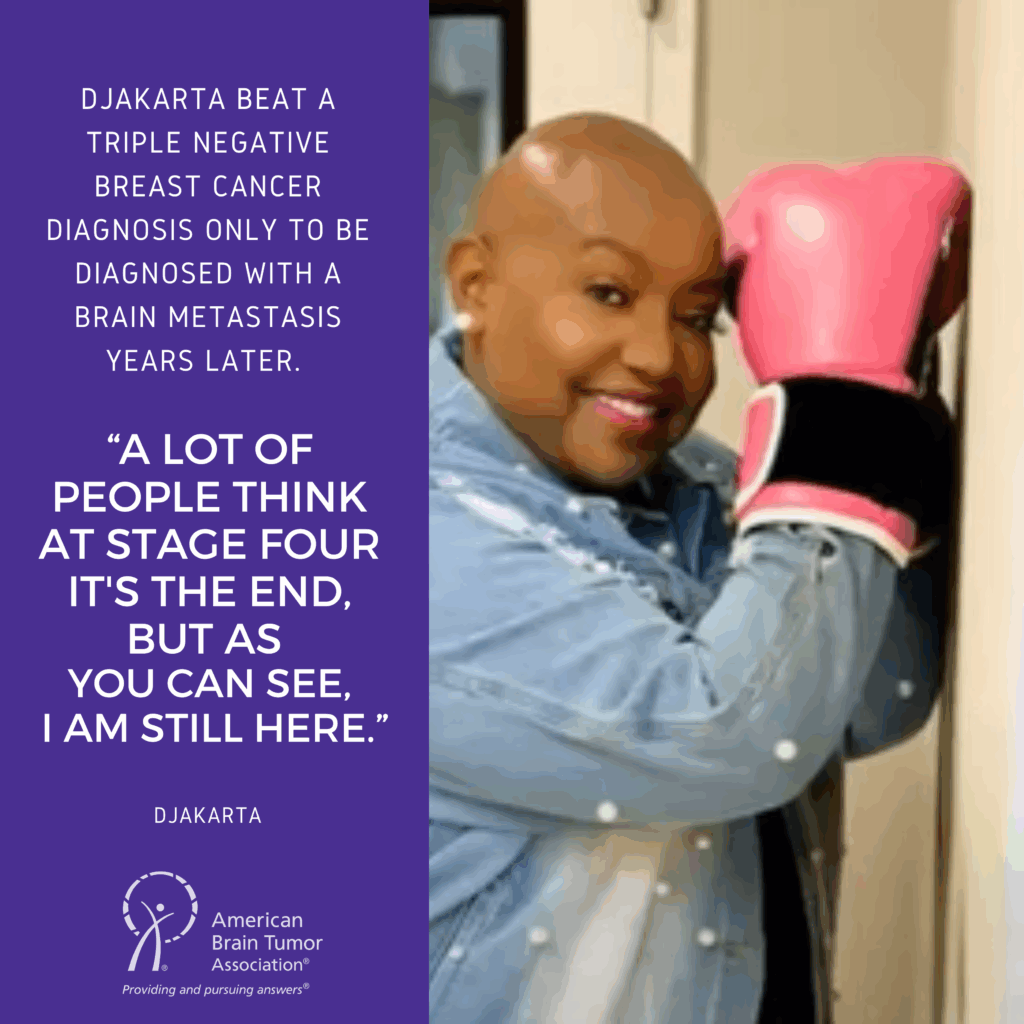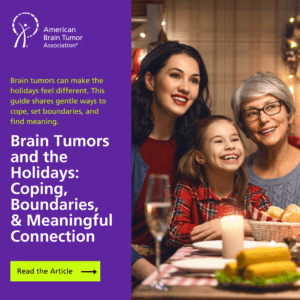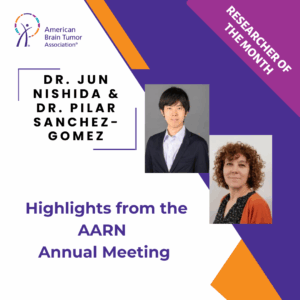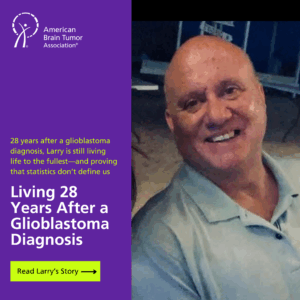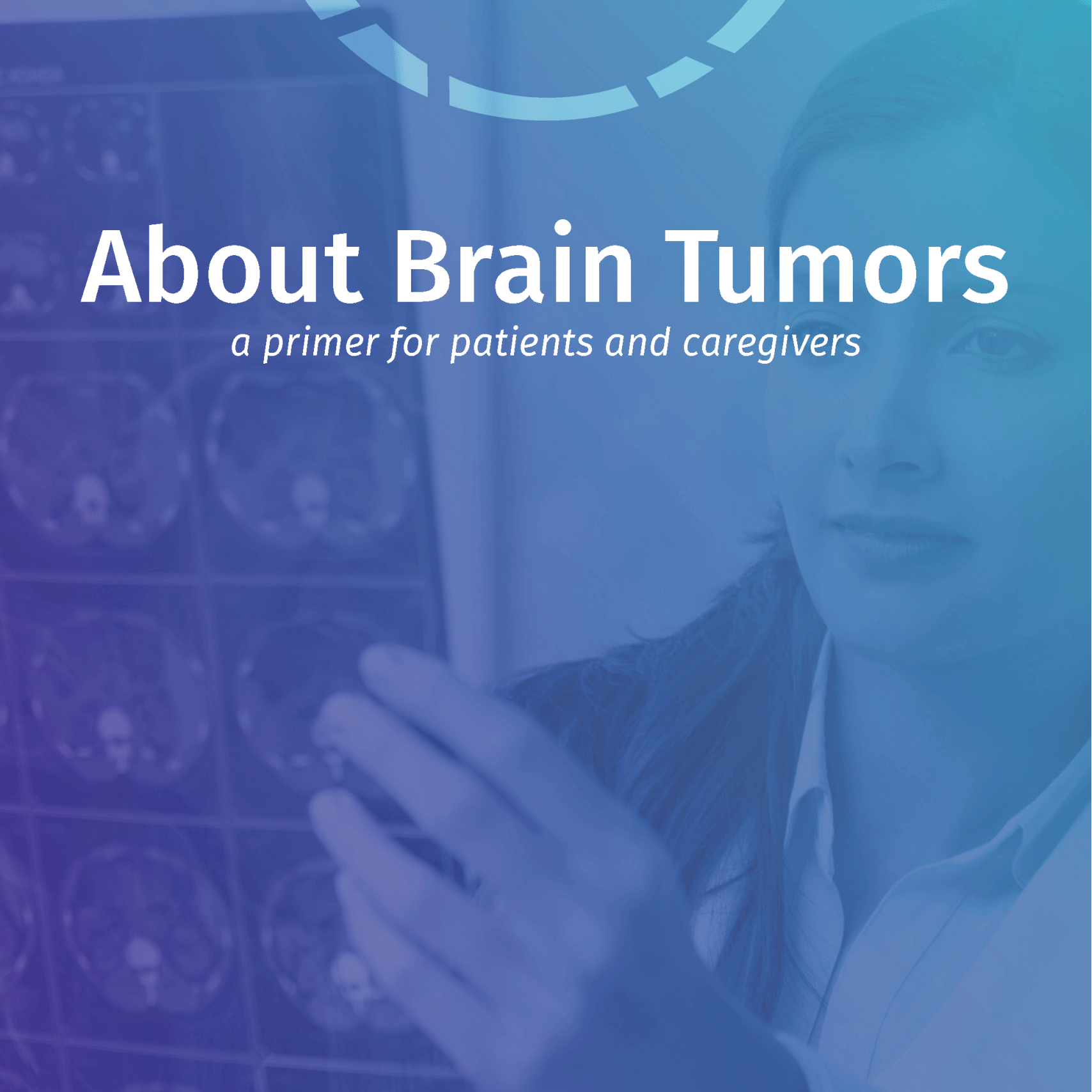When Djakarta was told her breast cancer had spread to her brain, she felt like the ground had disappeared beneath her.
She had just finished treatment for her primary cancer. She was starting to plan for the future again. To suddenly hear that the cancer had returned—in her brain—felt like starting all over again.
She was scared, numb, and angry all at once. Her first thought was, “Am I going to die?” Like many people who hear this diagnosis, she was flooded with fear and questions.
But Djakarta didn’t give up. Instead, she chose to lean into her support system and focus on the strength she had inside. Her faith played a major role in her journey. Her husband stood by her side, attending every doctor appointment and helping her make tough decisions. Her family gathered around her, prayed with her, and reminded her that she wasn’t alone.
Djakarta faced two brain surgeries. She experienced severe headaches and even had a seizure.
Her thinking changed too—some days it was hard to focus or remember things. At times, she felt frustrated. But she learned to give herself grace.
“I’ve been through a lot,” she reminded herself. “I’m not the same—but I’m still here.”
One of the biggest sources of comfort came from her care team. They took time to explain everything about her brain metastases. They answered her questions—even when she needed to ask them more than once. She also worked with a therapist who understood her background and could relate to her experience. This emotional support helped her feel seen and understood.
Djakarta also joined a support group. She connected with others living with brain metastases. She cried with them, laughed with them, and shared her story to help others feel less alone.
For Djakarta, hope came in small moments: a peaceful porch sit after a long appointment, a meal at her favorite restaurant, or simply making it through a difficult day.
“Hope,” she said, “means finding joy in the little things. It means living, even when things are uncertain.”
Her message to others is simple: “You are not a burden. You have the right to ask for help. And you are never alone.”
Hear Djakarta’s story and watch the Patient & Family Meeting recording to learn more about
The Emotional Journey of Brain Metastases:


